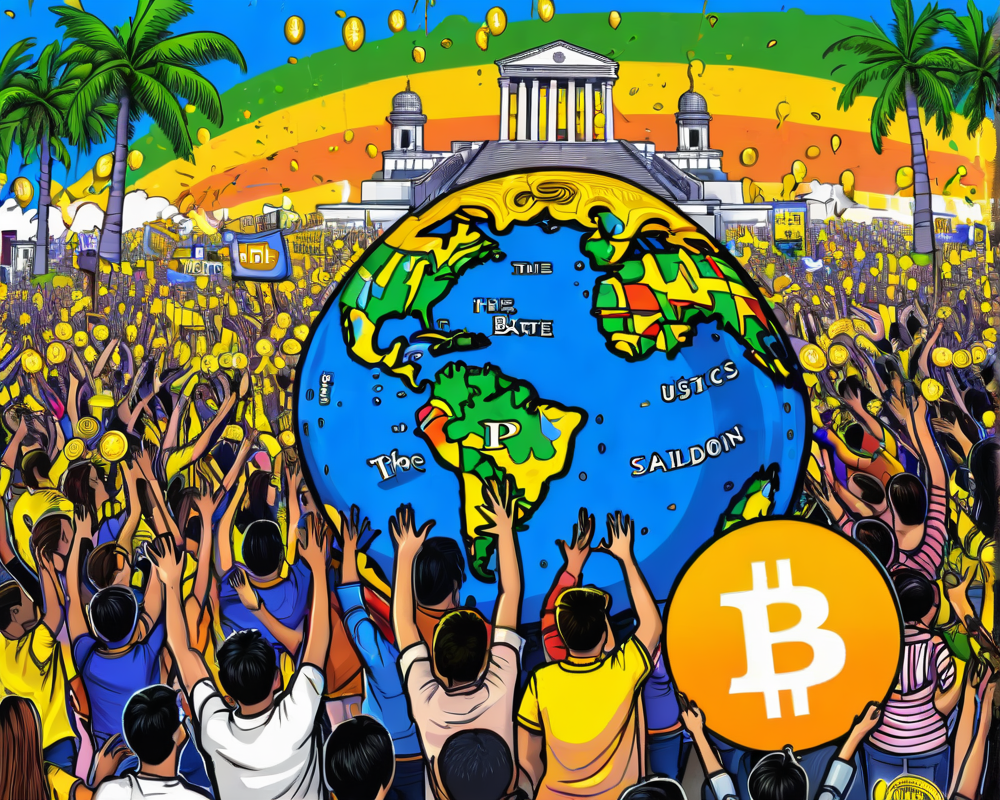The IMF’s Cautious Request
On January 25, the International Monetary Fund (IMF) made waves by requesting El Salvador to dial back its Bitcoin Law, specifically looking to strip away Bitcoin’s status as legal tender. The IMF, in its infinite wisdom, pointed out that this move could come back to bite El Salvador like a bad burrito if they weren’t careful about financial integrity and stability.
The Stakes: Is El Salvador a Global Threat?
But why is the IMF even bothered by little old El Salvador? With a GDP ranking at a modest 104th globally, it’s not like they’re about to send shockwaves through international finance, right? Furthermore, with 70% of the country’s population unbanked, many think that embracing Bitcoin could open the floodgates to new financial opportunities.
A Time for Conclusions?
It’s been less than a year since El Salvador emerged as the world’s first nation to adopt Bitcoin as legal tender. Some might argue that it’s premature to draw solid conclusions. After all, can anyone truly evaluate a financial experiment in less time than it takes to bake a loaf of sourdough?
IMF’s Mixed Signals
Gavin Brown, a financial tech professor, suggests that part of the IMF’s angst is due to Bitcoin’s notorious volatility. If a nation’s currency swings like a pendulum on caffeine, it’s understandable that the IMF would be on high alert.
Brown also hints at another layer of intrigue: the potential ripple effect if El Salvador strikes gold (or Bitcoin) in its experiment. It could spark a chain reaction, leading other nations to consider similar ventures, which is exactly what the IMF is trying to avoid!
The View from the Ground: Is it Working?
David Tawil, another financial wizard, believes that El Salvador’s foray into Bitcoin is not the success story some are hoping for. “It hasn’t exactly been a smooth ride,” he quips. With ongoing technical issues and a plummeting Bitcoin price, it’s uncertain if many countries will follow El Salvador’s lead. John Hawkins echoes this sentiment, noting that while Bitcoin adoption certainly spikes, it hasn’t led to a surge in foreign investment.
That 84% Adoption Rate?
Meanwhile, some reports claim an impressive 84% adoption of Bitcoin wallets in El Salvador, thanks in part to a free $30 incentive, which many citizens promptly withdrew. It’s a classic “free lunch, see ya later” scenario!
What Lies Ahead?
As Bukele continues to buy Bitcoin even amidst market tumbles, it’s a mixed bag of reactions. Some experts, like Tawil, think El Salvador’s crypto journey could slowly gain traction, possibly setting the stage for future innovations. But with IMF’s looming influence, one must ask: what’s the cost of defiance against the financial giant?
Questions of Intent
There’s also the theory that the IMF’s push reflects more than mere concern over market volatility; it might stem from a fear of cryptocurrency undermining the critical role of institutions like themselves. But others, like Hawkins, argue that the IMF’s response is driven by protecting the citizens and ensuring they can honor their debts.
Either way, it seems El Salvador’s brave gamble with Bitcoin is the real hot topic, with varying opinions on whether they’re pioneers or renegades. As Bukele said in a cheeky tweet, “buying when the price is down is not rocket science.” Looks like El Salvador is courting trouble—and possibly a financial future filled with surprises.




